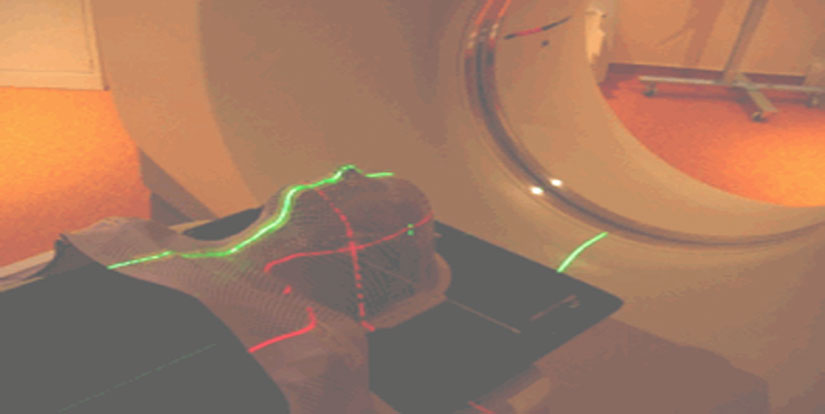Tumors of sinuses,
skull base
chordomas
and chondrosarcoma

Description
Tumors occurring in the skull base (located on the bone), or in the sinuses or near the sinuses (which are bone cavities at the face) are rare tumors. They are not easily operable in general, or when they are, the surgeon may not be able to completely remove the tumor mass without leaving large scars.
These tumors also have the particularity of being resistant to radiation therapy and require a high radiation doses. Proton therapy, more precise than conventional radiotherapy, can make the difference for these tumors which often lie next to healthy tissue, very sensitive to high doses of radiation.
Treatment procedure
Consultation, virtual simulation, multidisciplinary meeting
Each patient will be seen in consultation by the radiation oncologist to collect all the clinical, radiological and histological information and then present the case in multidisciplinary meeting to validate or not the indication for proton therapy.
The case can be discussed in a multidisciplinary meeting before the consultation with the radiation therapist to speed up procedures and if all the elements of the case are sufficient to make it possible.
Besides obvious clinical indication and prior consultation, a computer simulation of the treatment can be performed to assess the magnitude of the benefit of the proton treatment over a conventional radiotherapy by photons or electrons. Indeed, it may be that conventional treatment is appropriate and that proton therapy is not necessary.

If chemotherapy is associated: A consultation will be held in Nice and / or in the city of origin to prescribe chemotherapy if indicated during radiotherapy
Treatment initiation
The total dose of irradiation given is divided into multiple small doses of 1.8 to 2 Gy most of the time. These doses are delivered daily (once daily) except weekends and holidays. The total irradiation time is from several weeks (1 to 1 month and a half). The patient is seen once a week by a medical doctor, or more if necessary, to detect and treat the symptoms related to radiation. All patients will be seen by a doctor (in Nice or in the referral center) several weeks after radiation to monitor the short-term tolerance of treatment.
Side effects
The side effects depend on the treated area and the sensitivity of each, which is not predictable. Some patients will have no side effects, others will. The lists below are not exhaustive and side effects may vary according to size and position of the tumor. These variations are explained by the radiation oncologist during the consultation and the occurrence of side effects can be properly assessed after completion of dosimetry.
Complications that can occur during sinus tumor, skull base chordomas or chondrosarcomas irradiation can be:
– Fatigue, headaches,
– Inflammation of the mouth, in some cases with transient loss of taste,
– Decrease of saliva, possible tooth decay due to chronic decreased saliva can happen in rare cases, spontaneous broken jaw after dental work done in irradiated zones, even years after irradiation (dental care in these cases must be made prior to irradiation)
– Possible breach of the center which controls the hormones (sexual, thyroid, cortisol, growth hormone) based on the location of the tumor,
– In case of very close nerve localization, possible chances of lesions in order to maximize the chances of tumor control; most often, these nerves are affected anyway caused by the progression of the tumor locally; according to the nerves affected, possible loss of vision, hearing, motor skills or sensitivity of the face, etc …
– Possible trouble swallowing because of the necessity to irradiate the swallowing muscles that might cause food being swallowed the wrong way.
– Very rare occurrence of vascular disorders years later with a possible stroke, or onset of radiation-induced cancers years after also; the risk of these toxicities is reduced by using protons.

 English
English Deutsch
Deutsch Italiano
Italiano Français
Français Русский
Русский